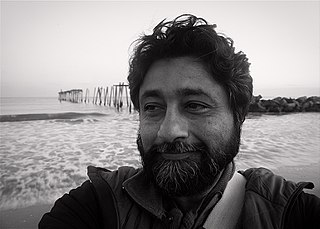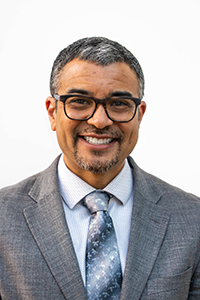
The University of Pennsylvania is a private Ivy League research university in Philadelphia, Pennsylvania. It is one of nine colonial colleges chartered prior to the U.S. Declaration of Independence when Benjamin Franklin, the university's founder and first president, advocated for an educational institution that trained leaders in academia, commerce, and public service. Penn identifies as the fourth oldest institution of higher education in the United States, though this representation is challenged by other universities, as Franklin first convened the Board of Trustees in 1749, arguably making it the fifth oldest institution of higher education in the U.S.
The University of Pennsylvania Carey Law School is the law school of the University of Pennsylvania, a private Ivy League research university in Philadelphia, Pennsylvania. Penn Carey Law offers the degrees of Juris Doctor (J.D.), Master of Laws (LL.M.), Master of Comparative Laws (LL.C.M.), Master in Law (M.L.), and Doctor of the Science of Law (S.J.D.).
The Wharton School of the University of Pennsylvania is the business school of the University of Pennsylvania, a private Ivy League research university in Philadelphia. It is consistently ranked among the top business schools in the world, and it is the world's oldest collegiate business school, having been established in 1881 through a donation from Joseph Wharton.

Amy Gutmann is an American academic and diplomat who has served as the United States Ambassador to Germany since 2022. She was previously the president of the University of Pennsylvania from 2004 to 2022, the longest-serving president in the history of the University of Pennsylvania. Gutmann resigned as president on February 8, 2022, following her confirmation by the Senate as ambassador after 18 years at the University.
John Quinn Trojanowski was an American academic research neuroscientist specializing in neurodegeneration. He and his partner, Virginia Man-Yee Lee, MBA, Ph.D., are noted for identifying the roles of three proteins in neurodegenerative diseases: tau in Alzheimer's disease, alpha-synuclein in Parkinson's disease, and TDP-43 in Amyotrophic Lateral Sclerosis (ALS) and frontotemporal degeneration.
Tom Baker is professor of law and a scholar of insurance law at the University of Pennsylvania Law School.
Norman Tenner Adler through his research, teaching, writing, and academic administration, made major contributions to the modern study of biological psychology and in American higher education, having helped develop the fields that are now labeled behavioral neurobiology and evolutionary psychology. One of Adler's prominent experiments included an in depth analysis of mating performance of male rats and its relation to fertilization in the female, which led him to observe how behaviour could affect reproduction in species. With his students and colleagues, he has worked at the interface between biology and behavior. They have stressed the importance of combining the study of physiological mechanisms controlling behavior with the functional/adaptive significance of behavior in an evolutionary context. He was influenced in this approach by his undergraduate teachers at Harvard, especially Paul Rozin, Jerry Hogan, and Gordon Bermant, and his student colleagues like Don Pfaff with whom he has maintained scientific relationships over the years. His research was also impacted by Daniel Lehrman, and he worked closely with Lehrman's student, Barry Komisaruk, on hormones and neural functioning. Adler is also a prominent figure in American higher education, especially the role of behavioral neuroscience in liberal arts education and religion in the college classroom. He participated in Phillip Zimbardo's PBS TV series Discovering Psychology, one of the first distance-learning courses in psychology.

Anjan Chatterjee is a professor of neurology at the Perelman School of Medicine at the University of Pennsylvania. He is director of the Penn Center for Neuroaesthetics (PCfN) and a member of the Center for Cognitive Neuroscience. His research focuses on spatial cognition and its relationship to language. He also conducts neuroaesthetics research and writes about the ethical use of neuroscience findings in society.
William Burke-White is an American law professor and policy advisor. He was the Inaugural Director of Perry World House, an interdisciplinary global policy research institute at the University of Pennsylvania.

Michael Andrew Fitts is an American legal scholar who is the current president of Tulane University in New Orleans, Louisiana, and the Judge Rene H. Himel Professor of Law at the Tulane School of Law. He is a former Dean of the University of Pennsylvania Law School. He is also the author of numerous articles that have appeared in the Harvard Law Journal and other prestigious scholarly publications.
John L. Jackson Jr. is an American anthropologist, filmmaker, author, and university administrator. He is currently the Provost and Richard Perry University Professor at the University of Pennsylvania. Jackson is the author of Harlemworld: Doing Race and Class in Contemporary Black America (2001); Real Black: Adventures in Racial Sincerity (2005); Racial Paranoia: The Unintended Consequences of Political Correctness (2008); Thin Description: Ethnography and the African Hebrew Israelites of Jerusalem (2013). He has also directed films that explore questions of race, diaspora, migration, and media.
The University of Pennsylvania College of Arts & Sciences (CAS) is the oldest undergraduate college at the University of Pennsylvania, a private Ivy League university, situated on the university's main campus in University City, Philadelphia. The college traces its roots to the establishment of a secondary school known as Unnamed Charity School in 1740. In 1749, Benjamin Franklin and twenty-one leading citizens of Philadelphia officially founded a secondary school named Academy of Philadelphia. In 1755, the secondary school was expanded to include a collegiate division known as College of Philadelphia. The secondary and collegiate institutions were known collectively as The academy and College of Philadelphia. The college received its charter from Thomas Penn and Richard Penn. Penn CAS is the oldest institution of higher learning in the state of Pennsylvania and the sixth-oldest chartered college in the United States.
Amy Laura Wax is an American legal scholar and neurologist. She is the Robert Mundheim Professor of Law at the University of Pennsylvania Law School. Her work addresses issues in social welfare law and policy, as well as the relationship of the family, the workplace, and labor markets. She has often made remarks about non-white people that have been described as white supremacist and racist.
Claire Finkelstein is the Algernon Biddle Professor of Law and Professor of Philosophy at the University of Pennsylvania Law School, and the Director of its Center for Ethics and the Rule of Law.
Mitchell N. Berman is an American legal scholar. He serves as the Leon Meltzer Professor of Law at the University of Pennsylvania Law School and, in addition, is also a professor of philosophy. He is also the Co-Director of the Institute for Law & Philosophy at the university.

Vijay Balasubramanian is a theoretical physicist and the Cathy and Marc Lasry Professor of Physics and Astronomy at the University of Pennsylvania. He has conducted research in string theory, quantum field theory, and biophysics. He has also worked on problems in statistical inference and machine learning.
Douglas Norman Frenkel is the Morris Shuster Practice Professor of Law at the University of Pennsylvania Law School.

Roy Hamilton is professor in the departments of Neurology, Psychiatry, and Physical Medicine and Rehabilitation at University of Pennsylvania (Penn). He is the Director of Penn's Laboratory for Cognition and Neural Stimulation (LCNS), and launched the Brain Stimulation, Translation, Innovation, and Modulation Center (brainSTIM) at the University of Pennsylvania in 2020.
Theodore W. Ruger is an American legal scholar specializing in constitutional law, judicial authority, health law, and the regulation of therapeutic goods. He is the Bernard G. Segal Professor of Law and dean of the University of Pennsylvania Law School.





